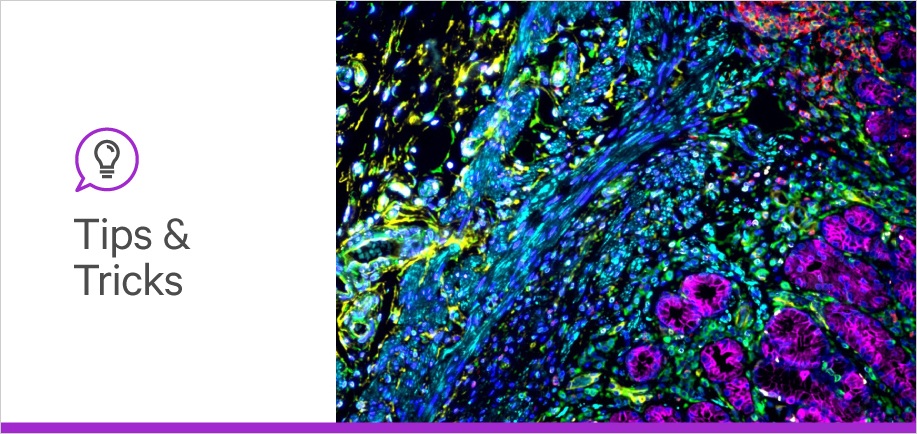
Vector Laboratories is closed for the President’s Day on Monday, February 19th. We will be back in the office on Tuesday, February 20th.
We will respond to emails upon our return. Have a wonderful day.
Menu
Vector Laboratories is closed for the President’s Day on Monday, February 19th. We will be back in the office on Tuesday, February 20th.
We will respond to emails upon our return. Have a wonderful day.

You’ve heard about the importance and promise of genetic mutations (1), the immune system (2), and even epigenetics in cancer (3), but how much do you know about glycobiology, the not so new kid on the oncogenic block? Complex sugar chains, or glycans, commonly form covalent linkages with lipids and proteins and regulate a dazzling array of cellular and molecular processes. In fact, glycans are sometimes referred to as the “dark matter” of biology due to their fundamental yet underappreciated and poorly understood role in cellular functioning. Crucially, they are believed to act as key drivers of cancer initiation and metastasis (4, 5).
Hungry for more information? Let Professors Karen Abbott and Susan Bellis satisfy your craving with their webinar about the tumorigenic potential of glycosylation. Read on to find out more or enjoy the full-length presentation, “It’s Bittersweet: The Tumorigenic Potential of Glycosylation”, here.
Susan, who obtained her PhD in Biochemistry, considers herself a basic rather than translational biologist at heart. She is fascinated by the glycotransferase ST6GAL1, a Golgi-localized enzyme that adds the sugar, sialic acid, to glycoproteins on their way to the plasma membrane. Thanks to its negative charge and position at the end of the glycan chain, sialic acid is a powerful modulator of both protein-protein interactions and the structure and protein of the glycoprotein itself. An increase in the amount of this fascinating sugar added to glycoproteins typically makes cells more stem-like, and the expression of its glycotransferase ST6GAL1 is enriched in stem and progenitor cells.
Susan and her team found that the addition of sialic acid to malignant cells promotes a more stem-like state, just like in normal cells. Unlike healthy stem cells, though, cancer stem cells drive tumor initiation, recurrence, and metastasis. “The take home point here is to convey a more invasive, apoptosis-resistant phenotype,” she explains. Susan’s group homed in on pancreatic ductal adenocarcinoma (PDAC) to better understand how the changes in sialic acid promoted by ST6GAL1—which is upregulated in human pancreatic cancer and correlates with cancer progression—drive malignancy. They were particularly interested in acinar to ductal metaplasia (ADM), a process whereby enzyme-producing pancreatic cells (acinar cells) de-differentiate and acquire stem-like properties. ADM typically occurs after injury caused by inflammation or damage as a transient state that leads to re-differentiation and regeneration of the tissue. However, if the cells acquire an oncogenic mutation, it can be one of the earliest events in the initiation of cancer.
RNA-Seq experiments on mice with ST6GAL1 knocked into their pancreas (SC mice) revealed that their acinar cells are more stem-like and have patterns of gene expression associated with ductal cells, consistent with ST6GAL1’s penchant for promoting an undifferentiated cellular state. Importantly, pancreatic cells taken from these animals form larger and more viable organoids (three-dimensional, stem-cell-derived tissue cultures that recapitulate much of an organ’s complexity) (6) than those taken from wild-type mice, indicating a greater potential for self-renewal. Susan’s lab has also gathered preliminary data showing that around half of the SC mice spontaneously develop pancreatic cancer. They are currently conducting studies to unravel the precise mechanisms by which ST6GAL1 drives ADM and the initiation of pancreatic cancer.
Unlike Susan, Karen, who also obtained her PhD in Biochemistry, is unabashedly a cancer researcher. She studies ovarian cancer, which generally responds well to chemotherapy. However, traditional chemotherapy is much better at targeting the bulk tumor than cancer stem cells, meaning that these cancers tend to recur and develop chemoresistance. After many years spent in glycobiology research, Karen believes that targeting abnormal glycosylation (the process by which glycans are attached to functional groups in other molecules) in ovarian cancer may be the key to eliminating cancer stem cells and improving treatment outcomes for patients.
Karen and her colleagues discovered that the glycosyltransferase GnT-III, an enzyme involved in glycosylation, is elevated in ovarian cancer and leads to the formation of highly unusual glycan structures in the tissue of patients with this disease. They also found that GnT-III protein is much higher in cancer stem cells as opposed to non-cancer stem cells, suggesting that these abnormal glycan structures are more likely to occur in the cancer stem cell fraction. The team was intrigued, so they grew spheroids—a type of three-dimensional tissue culture usually derived from a patient’s tumor (7)— from ovarian cancers in which they had inhibited the expression of the gene that encodes GnT-III. Bingo: spheroids lacking GnT-III acquired a size and shape indicative of fewer cancer stem cells and had changes in the expression of markers important for normal stem cell production.
To turn their discovery into a clinical tool, Karen and her group isolated a novel single-chain Fv (scFv) antibody able to bind these odd glycan structures from a library made from the B cells of ovarian cancer patients. Due to their small size, single-chain Fvs can penetrate tumors more quickly and evenly than conventional antibodies, making them an exciting therapeutic option (8). Karen’s lab is now leveraging their novel antibody to improve chimeric antigen receptor (CAR) T-cell immunotherapy, in which T cells are taken from a patient, genetically modified to express a CAR specific to a particular tumor antigen, expanded, and then re-infused (9). Since their antibody is designed to sniff out the abnormal glycans present on ovarian cancer stem cells, using it to engineer CAR T cells could help solve the decades-old problem of tumor recurrence driven by chemotherapy-resistant stem cells. “I told you that traditional chemotherapy does not target the cancer stem cells. Well, we could feasibly combine our therapeutic with traditional chemotherapy and knock everything out at once,” says Karen. “This will be a win-win for a lot of different cancers.”
Could glycobiological tools help you unravel your scientific questions? If you’re feeling inspired by Susan and Karen’s amazing work, head on over to our Lectins & Glycobiology Reagents page or download our Lectins Application and Resource Guide to learn about how Vector Laboratories can support your own research on these super sugars.
Jin J, et al. 2019. Identification of Genetic Mutations in Cancer: Challenge and Opportunity in the New Era of Targeted Therapy. Frontiers in Oncology.





Stay in the Loop. Join Our Online Community
Together we breakthroughTM

©Vector Laboratories, Inc. 2024 All Rights Reserved.